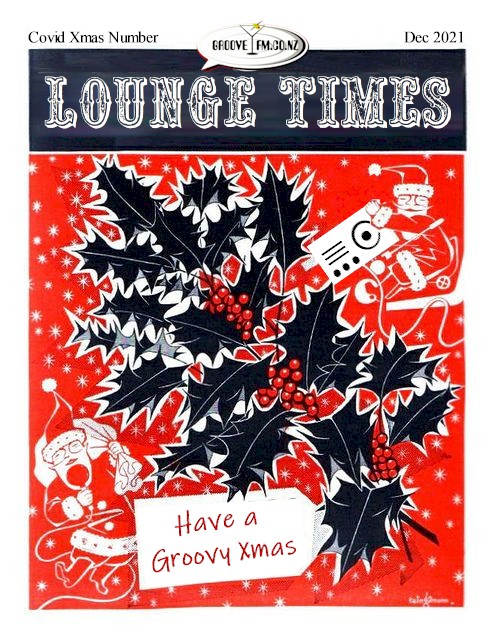The wireless has been a staple in our lives, entertaining
and keeping the nation together in times of hardship, war, strife, elation,
heartache and giving great happiness and even companionship to millions over
the generations.
In Aotearoa, it all began in November 1921 when Professor
Robert Jack (1877-1957), a physicist and university professor at Otago, and
early pioneer of radio broadcasting, made a short broadcast. In the first
minutes of his broadcast he played a gramophone record called 'Hello my Dearie'
followed by a few words Jack.
From there the medium of radio grew and grew. Over in the USA and in the UK the ABC, NBC
and BBC became giants of the media world.
The NZBC and subsequent commercial radio was slow initially but started
to gain traction by the 1930's.
There were many historical highlights broadcast over those
years including 1937 fiery destruction of the Hindenburg in New Jersey. A US Reporter Herbert Morrison in the middle
of his recording when the airship burst into flames. It knocked and his camera operator down. You
can just hear him crying out calling for people to move out the way, while
shouting "Oh the humanity".
Back at home, in 1939, New Zealand Prime Minister Michael
Joseph Savage took to the air to announce the outbreak of World War II. "The war on which we are entering,"
his speech went, "may be a long one, demanding from us heavy and
continuous sacrifice... It is essential we realise from the beginning, that our
cause is worth the sacrifice."
In 1953 there was a newsflash broadcast that New Zealander
Edmund Hillary had conquered Mount Everest.
And then later that same year, the Tangiwai Disaster, when a train plunged
into the flooded river, killing 151 passengers. "One reporter said:
"Some bodies have been recovered 15 miles from the scene of the
disaster. I gravely fear there is little
hope of further persons being found alive."
Radio was there when the Wāhine sunk in Wellington Harbour,
on 10 April 1968. A reporter on the scene told of the ship swaying in the
Wellington Harbour waters, before it became fully submerged, people leaping
onto life rafts.
More disaster on the radio as the news from the devastating
Mount Erebus disaster rolled in.
Coverage initially told of the aircraft was lost, with fuel reserves running
out. But the tone changed when wreckage
was discovered, bodies seen from the search team's plane. The clearly affected reporter said there
would be no survivors and it would be unlikely all the bodies would be able to
be retrieved as some were buried under the snow.
The 1981 Springbok Tour held a lot at airtime, with the
country divided for 56 days. At the
Auckland game, a commentator watched protesters dropping flour and smoke bombs
on the pitch, one even hitting an All Black.
It eventually stopped the game.
Then there was the Muldoon era and the infamous
"schnapps election". On the
night of 14 June 1984, Muldoon, Prime Minister at the time, staggered drunkenly
up to the podium to announce a snap election.
"It doesn't give you much time to run-up to an election, Prime
Minister," he was asked. Muldoon replied, slightly wobbly, "It
doesn't give my opponents much time to run-up to an election does
it?" National lost and the era of Rogernomics was ushered in.
1995 had a victory of a different kind, when we won the
America's Cup - Peter Montgomery was widely air checked "The America's Cup
his now New Zealand's cup".
Sirs Peter Blake and Russell Coutts has sailed Black Magic
to a 5-0 sweep. There were lucky red
socks parades around the country.
On September 11, 2001 we heard the haunting audio of a
mother leaving a voicemail to her family.
She explained she was a passenger on one of the hijacked planes, she
could only hope she'd see their faces again.
That day and those events will be forever emblazoned on our minds - the
day the Twin Towers of the World Trade Centre in New York were toppled by two
planes.
In the early 2000's Aotearoa made its name in Hollywood -
first Jane Campion and Emma Pacquin winning for 'The Piano' and then 'Lord of
the Rings' taking a 'clean sweep’, also at the Oscars. 'Return of the King' (by Sir Peter Jackson)
scooped 11 categories in 2004.
Only 6 years after Pike River Mine exploded - an ongoing
story to this day. And then the tragedy
of a catastrophic earthquake in Christchurch in 2011.
Christchurch was hit by a second tragedy in 2019, one of our
darkest days, with the attack on two mosques.
"All of a sudden we just heard gunshots," said an eye witness
on RNZ that day, " I left everything, my mum grabbed my hand and we just
ran outside, everyone was in chaos, we were just running for our
lives."
And now the Covid 19 Pandemic with daily stand ups,
lockdowns, Prime Minister Jacinda Ardern announcing the levels, the rise of
respect for a common public servant - Dr Ashley Bloomfield.
Groove, too has had many highlights. We started in the bedroom of an Island Bay
flat - the Brainchild of ex-Fish-erman (Taupo) radio owner Dean Conland. Early days included live broadcasts of jazz
at St Hilda's in Island Bay, parades and fairs around the ropu. A few years
later the station moved to Trade's Hall, the infamous site of the Ernie Abbot
bombing in the 1980's. Groove has also
run live crosses at the Newtown Festival, the Food Show, Jazz night at
Haitatai's Realm Bar, The International Arts Festival, The Tuis and the AMA's plus many other high profile events. We also have been longstanding supporter of
WOMAD, in Taranaki, and to this day run interviews with local and international
artists.
Check out our back pages, we've
interviewed and shared the mic with countless musicians and friends. We still
run the Groove Book report, Facebook, and broad cast on this site via the
internet, reaching an unlimited listening audience.
To all the wonderful people that have supported us over the
years - ka pai - thank you.
Please keep
listening and celebrating music, books, food and the arts with us.

























































